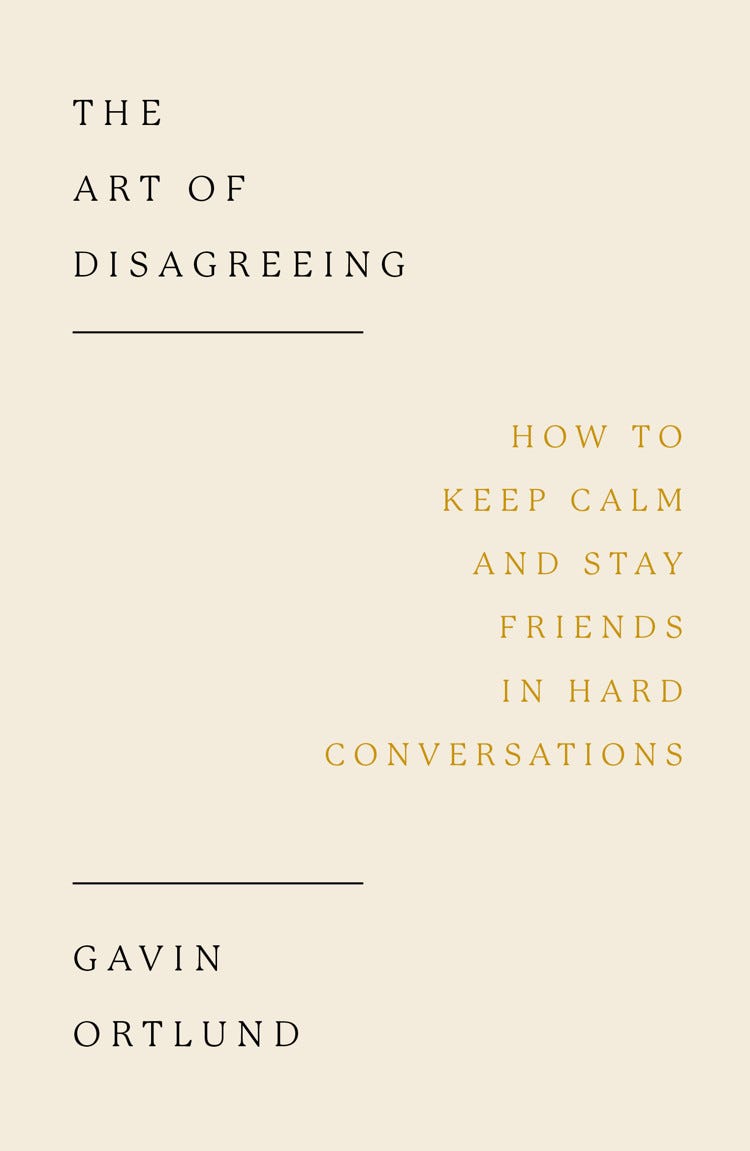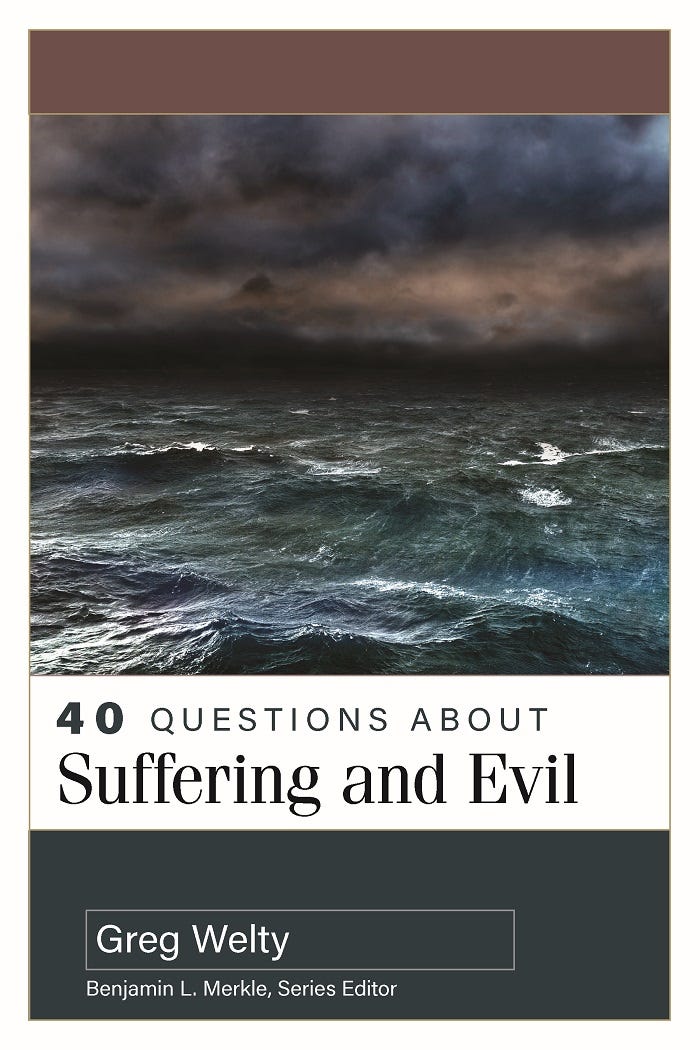[Note: See parts 1 and 2 of this series here and here.]
Saying No to Immersion into “Abrahamic Religions”
We must reject false monotheistic viewpoints, although through a different strategy than employed against polytheism and pantheism, which we considered in part 2. Christianity is monotheistic: there is one infinite and personal Creator and Judge, who is Lord of history. However, monotheism is not sufficient to explain Christianity, since the God of the Bible is a Trinity: three-in-one. Believing in one God is not sufficient for salvation, as James teaches: “You believe that there is one God. Good! Even the demons believe that—and shudder” (James 2:19). Very religious people may believe there is one God, but they are not necessarily right with God.
The Trinity is a complex subject, but not as mystifying as some think. All the great and historic creeds and confessions affirm the Trinity as essential to the Christian faith. It is biblical, logical, and it is a defining feature of Christian monotheism, as opposed to Judaism or Islam. Christians do not affirm a bare and bland monotheism, but a trinitarian account of the deity that offers a richer and deeper account of God, and which makes salvation possible and available.
The Bible teaches that there is but one God (Deuteronomy 6:4; 1 Corinthians 8:4; 1 Timothy 2:5) and that the Father is God (Matthew 7:9), the Son is God (John 1:1-3), and the Holy Spirit is God (Acts 5:1-4; 2 Corinthians 13:14). But there are not three gods, which would be polytheism, something the Bible forbids. The Christian tradition affirms that there are three persons in the one God, all equally divine and who share all the divine attributes. In other words, there is one what (God) and three who (the Father, the Son, and the Holy Spirit). Thomas Jefferson to the contrary, the Trinity is not an arithmetical absurdity—three equals one. Neither the Bible nor any Christian creed or confession teaches that. Rather, God is three in one. We need not know exactly how that three-in-one relationship plays out to avoid the charge of contradiction, since we know of other three-in-one relationships which are not contradictions, such as a triangle being one figure with three sides.[1]
Trinitarian teaching is rooted in the Bible, confessed in the history of the church, is not irrational, and marks out a distinctive and distinguishing aspect of Christian monotheism. Beyond that, the Trinity has great explanatory power in accounting for the nature of human relationships, particularly love. God is love in that the members of the Trinity love each other (John 17:1-5).[2] God did not have to create the world to have someone to love. But what of the claim that Christianity shouldn’t get too uppity about its God, that it should subsume itself as one of the three Abrahamic religions?
Jews, Christians, and Muslims all revere Abraham as a man of faith chosen by God to be the father of a great people, the Jews. The Bible tells us that after God spoke to Abram (later renamed Abraham), “Abram believed the Lord, and he credited it to him as righteousness” (Genesis 15:16; see also Galatians 3:6-9). However, too many implications are drawn from this agreement about Abraham among the three monotheistic religions. The general claim is that each religion is an equally legitimate form of monotheism. Why bother about the details when they all believe in God and take Abraham as the father of faith? This is because the details are decisive on matters of truth and faith.
The religion of the ancient Jews was God-inspired and God-ordained. The Lord moved heaven and earth to elect a people to carry his name and ways into the world to display his glory and holiness and to be the runway for the Messiah for all people. As Jesus said, “Salvation is of the Jews” (John 4:22). Jesus was the perfect Israelite, who trusted his heavenly father and obeyed the spirit of the law without sin and in perfect righteousness.[3] He makes all the difference in the world and beyond this world into eternity. He is the Lord of history and the purpose of history. He is the Savior of Jews and Gentiles. Paul speaks of Jesus:
But when the set time had fully come, God sent his Son, born of a woman, born under the law, to redeem those under the law, that we might receive adoption to sonship (Galatians 4:4-5).
Those “under the law” are Jews, who find redemption through God’s Son, but that redemption goes out into the world for Gentiles as well.
Thus, the relationship of Christianity to Judaism is one of fulfillment of promises. Nothing in the Old Testament is false or misleading; however, it all points toward Christ and his New Covenant. But the God of Islam is another matter.[4]
In 610 AD, a man named Muhammad went into a cave in Mecca to try to find God. He was unsatisfied with the many gods and many idols of his hometown. He supposedly heard a voice say, “Recite,” but he did not know what that meant. He heard that this was the angel Gabriel giving him a new revelation of the one, true God named Allah. He was to recite the new revelation. Although Muhammad could not write, he memorized the messages and recited them to those who wrote it down. This became the Koran, the holy book of Islam.
His message was that polytheism and idolatry were wrong, that God was one, and that he was the last and final prophet of God, the “seal of the prophets.” His revelation usurped Christian religion, and he called Christians and Jews to follow him. The Meccans, Jews, Christians, and polytheists rejected him, but he relocated to Medina, where he gathered followers. He later returned to Mecca and established himself as the supreme religious and political figure who was intent on establishing Islam (meaning submission to Allah) worldwide.
Islamic history need not concern us, but rather the teaching that Christians must reject. The Koran refers to Jews and Christians as “people of the book,” but it rejects the complete truthfulness of the Old and New Testaments. It retells some Old Testament history and, most importantly, denies that Jesus was God and that he died on a cross. It also denies the gospel message of Jesus, substituting salvation by works for the gospel of grace received by faith in the atoning work of Christ (John 3:16; Romans 5:1-8; Ephesians 2:1-10).
We find that despite its monotheism, Islam, unlike Judaism’s relationship to Jesus Christ, does not fulfill Christianity; rather, it denies its essence. Despite its claims that Jesus was a prophet, was sinless, worked miracles, and was “the messiah,” it denies his mission and his accomplishments secured through his life, death, resurrection, and ascension. As such, Christians must deny Islam as a religion wrought by God. Even more, it must reject Mohammad as a false prophet, utterly out of alignment with the Old Testament prophets, John the Baptist, and Jesus. Jesus warned of false prophets (Matthew 7:15-20; 24:24), and Paul amplifies on this in a passage that almost seems to have Muhammad in view. In writing against a defection from the gospel in the early church, the Apostle lays down a principle of spiritual and theological discernment.
I am astonished that you are so quickly deserting the one who called you to live in the grace of Christ and are turning to a different gospel—which is really no gospel at all. Evidently some people are throwing you into confusion and are trying to pervert the gospel of Christ. But even if we or an angel from heaven should preach a gospel other than the one we preached to you, let them be under God’s curse! As we have already said, so now I say again: If anybody is preaching to you a gospel other than what you accepted, let them be under God’s curse! (Galatians 1:6-9).
The gospel is the good news of God’s saving provision through Jesus Christ, which we receive by faith and apart from works. As Paul later writes in the same book, “Clearly no one who relies on the law is justified before God, because ‘the righteous will live by faith’” (Galatians 3:11). Thus, any message that deviates from the gospel must be rejected; it cannot be incorporated into the Christian worldview, since it opposes it. Muhammad claims “an angel of heaven” delivered the divine message to him. But, according to the Apostle’s standard, no message that denies the gospel can be true. The Apostle John voices the same concern, focusing on the identity of Jesus:
Dear friends, do not believe every spirit, but test the spirits to see whether they are from God, because many false prophets have gone out into the world. This is how you can recognize the Spirit of God: Every spirit that acknowledges that Jesus Christ has come in the flesh is from God, but every spirit that does not acknowledge Jesus is not from God. This is the spirit of the antichrist, which you have heard is coming and even now is already in the world (1 John 4:1-3).
Writing about five hundred and fifty years before Muhammad repined in a cave to seek a God already sufficiently revealed in the Bible, the Apostle John condemned his teaching by extension. When John refers to someone denying that “Jesus Christ has come in the flesh,” he means the Incarnation: the Word became flesh and dwelt among us, full of grace and truth (John 1:14). Islam claims that God is too transcendent to be “God with us” through Christ. The “spirit” that spoke to Muhammad was not “from God,” but the spirit of “the antichrist.” This may not play well at ecumenical gatherings or for those who put peace above truth, but it is true nevertheless.
To sum up, while Judaism, Christianity, and Islam respect Abraham as one called by God and who believed God as the father of many nations, any appeal to the three “great Abrahamic religions” cannot soften the vital and irreconcilable distinctions between Judaism, Christianity, and Islam. Judaism prepares the way for Jesus and the Christian church; it is incomplete, but true regarding the teaching of the Old Testament. Islam is a repudiation—and not a fulfillment—of both the Old and New Testaments. It is not content to let Jews and Christians continue in their religions unchallenged by Islam.
But Christians, who dare to say “No” to falsehood (even at the price of martyrdom), to false gods and false gospels, must challenge Islam by explaining and advancing the gospel of the one true God brought to us in the flesh by Jesus Christ, God’s one and only Son, a rock of offense for those who refused to believe and repent on his terms. Christ and his cross are an offense to all who try to attain salvation through good works. As Paul says:
They stumbled over the stumbling stone. As it is written:
“See, I lay in Zion a stone that causes people to stumble
and a rock that makes them fall,
and the one who believes in him will never be put to shame”(Romans 9:32-33; Isaiah 8:14; 28:16).
Despite their common monotheism, both Islam and Christianity cannot both be true. Given the evidence, we can know that Christianity is true, and its truth excludes all claims that oppose it, Islam or otherwise.
Notes
[1] These analogies may fail to capture the Trinity exactly, but by definition no analogy is perfect. We don’t base our theology on the imperfect analogies, but on the Bible and the basic confines of logic.
[2] See Jonah Haddad, Leaving Dirt Place: Love as an Apologetic for Christianity (Eugene, OR: Wipf & Stock, 2011).
[3] Burk Parsons, “The True Israel of God,” Ligonier, October 1, 2012, https://learn.ligonier.org/articles/the-true-israel-of-god.
[4] For a more on Islam, see Douglas Groothuis, “Christianity, Muhammad, and the Jews,” Beyond the Wager: The Christian Brilliance of Blaise Pascal (Downers Grove, IL: InterVarsity-Academic, 2024) and Douglas Groothuis, “The Challenge of Islam,” Christian Apologetics.
— Douglas Groothuis is University Research Professor of Apologetics and Christian Worldview at Cornerstone University and is the author of twenty books, including, most recently, Beyond the Wager: The Christian Brilliance of Blaise Pascal (InterVarsity-Academic, 2024) and Christian Apologetics, 2nd ed. (InterVarsity-Academic, 2022).
The Worldview Bulletin thrives when readers like you subscribe.
Subscribe for yourself, or consider giving a gift subscription to a family member or friend. You’ll receive exclusive content, gain access to our full archive of articles, and support our work of commending and defending the Christian faith.
During our Summer Sale, receive a 25% discount off the regular price of a subscription!
You can also give a one-time donation of any amount at our giving site.
Producing The Worldview Bulletin takes considerable time and energy. If you find our work helpful, please consider subscribing or donating.
[In partnership with]
The Art of Disagreeing: How to Keep Calm and Stay Friends in Hard Conversations
In this positive and practical book, Gavin Ortlund looks to the Scriptures to discover a way in which to disagree with others that leads to greater understanding, peace, and love—and that shows a watching world something of Jesus.
This is a much-needed message in a society that is losing the ability to disagree well. Whether over politics, religion, or culture, or the more everyday issues of normal life, points of view tend to be held with a polarizing intensity. Too often we view disagreements as must-win contests or simply do our best to avoid them altogether.
Looking to Jesus’ example of courage and kindness, readers will be given a framework for engaging in intense disagreements with a love that furthers instead of hinders relationships.
So, whether you tend to fight or flee, learn how to keep calm and stay friends—even when you disagree.
“Culture wars, political polarization, and the toxic climate of social media are making it harder than ever for Christians to have conflictual conversations that build up relationships rather than tearing them down. Gavin Ortlund rightly believes that it is possible for us to disagree without being disagreeable. In The Art of Disagreement—a book blessedly short enough to read before your next hard conversation—Ortlund offers both spiritual encouragement and practical guidance for listening well, speaking wisely, and honoring God whenever we disagree.”
— Philip G. Ryken, President, Wheaton College
See our recent excerpt from The Art of Disagreeing here.
Find The Art of Disagreeing at The Good Book Company and Amazon.
On the Resurrection, Volume 2: Refutations
While evidence for Christ’s resurrection abounds, there are still those who posit alternative explanations for the empty tomb. In On the Resurrection, Volume 2: Refutations, Gary Habermas offers detailed analyses and rebuttals of the alternate theories surrounding Jesus’s resurrection.
Comprehensive in scope, On the Resurrection, Volume 2: Refutations addresses topics such as:
Second-century texts that seem to challenge the resurrection
Hume’s arguments against miracles
The naturalism and skepticism of nineteenth-century German liberalism
Alternative theories such as the disciples or others stealing the body, the “swoon” theory, hallucinations, and mythological understanding
Habermas engages critically with the arguments and offers a comprehensive apologetic for the reality of Christ’s resurrection.
“This series confirms Habermas’s status as the leading voice among an increasing number of eminent scholars openly affirming the strong evidence for Jesus's resurrection.”
— Craig S. Keener, F.M. and Ada Thompson Professor of Biblical Studies, Asbury Theological Seminary
“Professor Gary Habermas has made studying the resurrection of Jesus Christ his life’s work. Probably no one else on the planet has researched or documented the relevant arguments in greater detail.”
— Peter Williams, principal, Tyndale House, Cambridge, United Kingdom
See our recent excerpt from On the Resurrection, Volume 2: Refutations here.
Find On the Resurrection, Volume 2: Refutations at Amazon, Barnes & Noble, Christianbook.com, and Books-a-Million.
40 Questions About Suffering and Evil
Both inside and outside the Christian faith, many difficult realities trouble human hearts and minds. By being equipped to answer questions about suffering and evil, Christians can persevere in faith, share their faith, and defend the faith when confronted with these inevitable challenges of living in a fallen world. Greg Welty explores vital ideas, backgrounds, and issues, answering questions like these:
What is the difference between Moral Evil and Natural Evil?
What is the Bible's role in helping us understand suffering and evil?
Does God will all suffering and evil?
How is the gospel relevant to counseling those who suffer?
Welty provides biblically informed intellectual resources for answering significant questions about suffering and evil, exposing readers to a wide range of influential views articulated by Christians over the past two millennia.
“Greg Welty writes with insight and clarity on what is, and always has been, the primary objection to Christian faith: Why doesn’t God do more to stop suffering? 40 Questions about Suffering and Evil is helpfully arranged with clear questions matched to easily accessible answers. Whether considering how best to respond to a questioning friend, preparing to preach or teach, guiding your kids, or finding encouragement for your own faith, Dr. Welty’s book is one you’ll want close at hand.”
― J. D. Greear, Pastor, The Summit Church, Raleigh-Durham, NC
“This book is an extraordinary resource, and I am thrilled to see it published. Without hesitation, this will be the very first volume I point people to as they explore the theological and philosophical questions surrounding evil and suffering.”
— Jamie Dew, President and Professor of Christian Philosophy, New Orleans Baptist Theological Seminary
Read our excerpt from 40 Questions about Suffering and Evil here.
Find 40 Questions about Suffering and Evil at Amazon, Barnes & Noble, and Christianbook.com.
Advertise in The Worldview Bulletin
Do you have an educational institution, ministry, book, course, conference, or product you’d like to promote to 7,976 Worldview Bulletin readers? Click here to learn how. We’re currently booking for June-July.








Excellent! As always. Thank you.